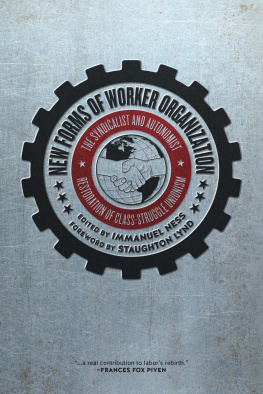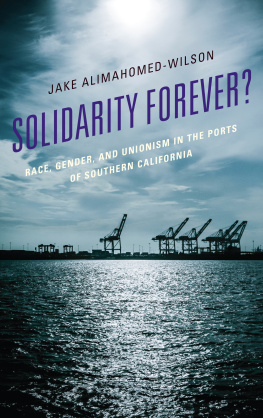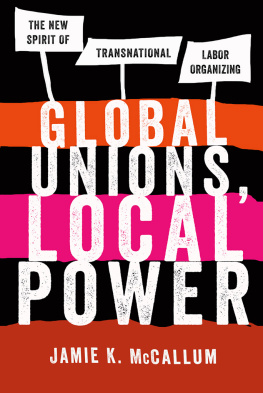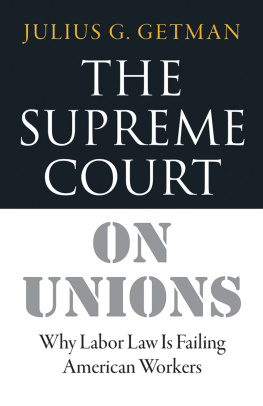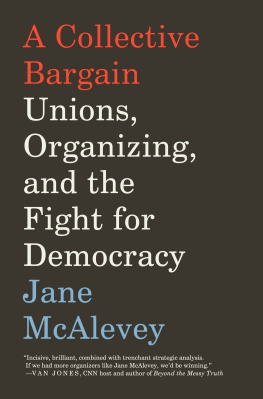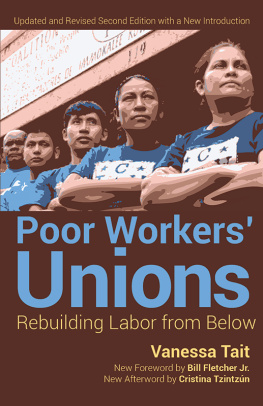Immanuel Ness has added another book to his excellent series for understanding the survival strategies of the politically most profound, yet most deprived, section of the citizens during the last almost five centuries. I expect this book to stimulate fresh debate on what depoliticization of the working class amounts to. Besides, after reading the chapters in this work, the question that haunts the liberal minds is why is this unprecedented intolerance of capitalism occurring at a mature stage of its development? Autonomist restoration is born of the spectacle of irrationality. Its impulse is to demand order in the midst of chaos; it protests, it demands, it insists that the outrage be brought to an end. These essays are most likely to throw challenges to the conventional economics of collective bargaining. Debdas Banerjee, professor of economics, Institute of Development Studies, Kolkata, India, and author of Labour, Globalization and the State
Manny Ness has brought together essays that illuminate the most important questions of our time: not only can the labor movement rise again, but can the democratic and transformative currents which sometimes inspired the movement in the past reemerge today. These essays explore these questions over time, and across the globe, making a real contribution to labors rebirth. Frances Fox Piven, distinguished professor, City University Graduate Center, author of Challenging Authority and Poor Peoples Movements
By organizing a strike or going out on the street to protest with demands against the bastions of capital, labor activists rarely think about the historical significance of what they are doing. This collection of vivid chapters of major labor struggles reveals the essential nature of the labor movement in the last quarter century. Here in Russia, this book will be very useful as we need to learn the international experience of workers struggles. Vadim Bolshakov, trade unionist, labor movement activist, historian of the Russian workers movement, and author of several hundred publications
All those who are fighting for the overthrow of capitalism must be grateful to Immanuel Ness and his team for this new book, which continues the worldwide exploration of new forms of organization and conflict of workers against the rule of capital on humans, environment, and nature. Piero Bernocchi, national spokesman, COBAS (Cobas Federation) and author of Benicomunism: Fuori dal capitalismo e dal comunismo del Novecento
This book is a crucial analytical and tactical handbook for workers protesting against management. In most cases, protests, strikes, and insurgencies are only measured through government data. New Forms of Worker Organization provides independent information on workers protest, their reasons, and the nature in which they are realizedessential for understanding the true shape of the workers movements in countries throughout the world. This research should be used by workers and labor unions as a tool to reach their objectives and to protect and advance workers rights. Vadim Borisov, representative of IndustriALL Global Union, CIS Region, sociologist, and author of over one hundred publications on workers movements in Russia
New Forms of Worker Organization offers abundant insights on labor struggle in an era when familiar unions seem exhausted or at least too weak and tired to make a concerted effort with concrete examples of workers forming independent unions throughout the world. Get this book and think afresh! Paul Buhle, coeditor of It Started in Wisconsin and author of numerous works on syndicalism
This remarkable international collection shows working-class power being built from the ground up by rank-and-file workers self-organizing to create new forms of autonomous, democratic organizations. Grounded in a reclamation of histories from earlier struggles, a strong critique of bureaucratic unionism, and an unapologetically anti-capitalist framework, it offers fresh, compelling analyses, vital conceptual toolsand hopefor the local and global fight for freedom from exploitation, today and tomorrow. Aziz Choudry, coeditor of Organize! Building from the Local for Global Justice, and assistant professor, Department of Integrated Studies in Education, McGill University
The pseudo-dilemma set to all working people, work or starve, echoes louder today in Europe, Asia, the Americas, and worldwide, where unemployment and poverty are increasing as social provisions are collapsing. Under these circumstances the formation of autonomist workers organizations and the detailed labor struggles explored in New Forms of Workers Organization is necessary for the counterstrike, and towards a long-term political general strike. Dimitris Dalakoglou, University of Sussex
Analytically brilliant and empirically sound, a must read for all to grasp the power of workers self-organization. A superb portrait of the trajectory of independent workers struggle, a porteur despoir for the future of class struggles. Sushovan Dhar, author and independent trade union activist, Indian National Trade Union Initiative
As the U.S. labor movement conducts its latest, frantic search for new ideas, there is no better source of radical thinking on improved modes of union functioning than the diverse contributors to this timely collection. New Forms of Worker Organization vividly describes what workers in Africa, Asia, South America, and Europe have done to make their unions more effective. Lets hope that these compelling case studies of rank-and-file struggle and bottom-up change lead to more of the same where its needed the most, among those of us born in the USA! Steve Early, former organizer for the Communications Workers of America and author of Save Our Unions: Dispatches from a Movement in Distress
New Forms of Worker Organization is a significant contribution to understanding the forces propelling the assault against worker organizations as capitalist-driven imperialism extends throughout the world. The book examines how foreign direct investment in the Global South and beyond expropriates the labor of workers and extracts natural wealth in the ineluctable search for profits. Given the contemporary assault against traditional unions formed in the twentieth century, this book provides dramatic contemporary case studies of worker resistance to corporate exploitation and state violence against unionization in chapters with examples drawn from Africa, the Americas, Asia, and Europe through the formation of militant organizations in factories and within their communities. Bill Fletcher Jr., activist and author of Theyre Bankrupting Us! and Twenty Other Myths about Unions
A dynamic, exciting book! It provides an answer to Nickel and Dimed. Alongside the revolt of some of Barbara Ehrenreichs Walmartians, the book chronicles other finely calibrated campaigns from around the globe designed to put power back into the hands of the workers. These green shootsor seedsprovide inspiring road maps for direct action organizing based on cooperation, imaginationand the resourcefulness of the human spirit. Jane Latour, author of Sisters in the Brotherhoods: Working Women Organizing for Equality in New York City
A welcome, provocative, and necessary book! While the inarguable truth of this collections premisethat inthe United States, as elsewhere throughout the world, unions have continued to decline and the wages and conditions of unorganized workers have worsened dramaticallycould leave one feeling as hollowed out as the labor movement itself, the opposite proves true. Manny Ness and the contributing authors have built a sturdy platform for readers to observe and assess case studies of autonomous, militant, worker-driven, struggles from all points of the globe. Their forms and strategies are divergent, honestly evaluated, and not readily reduced to formulaic categorizations (thank goodness). There is an essential and vital need for this exploration, because bidding goodbye to our post-New Deal labor institutions can feel hopeless; this book shows us it is not. Ellen David Friedman, visiting scholar, International Center for Joint labor Research, Sun Yat-sen University, Guangzhou, China, and Labor Notes Policy Committee
Next page
